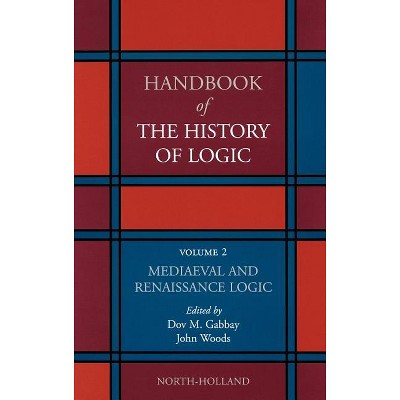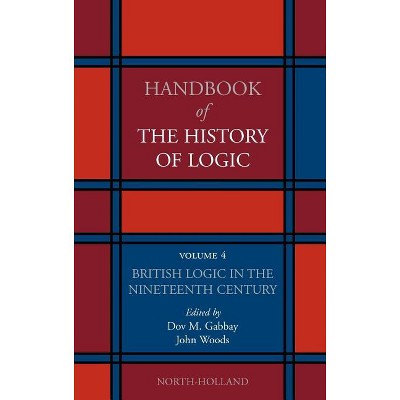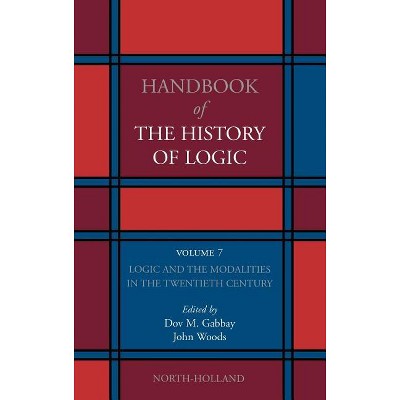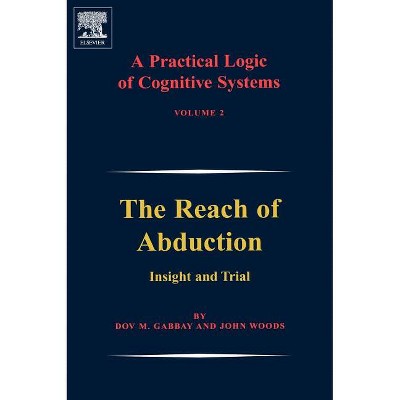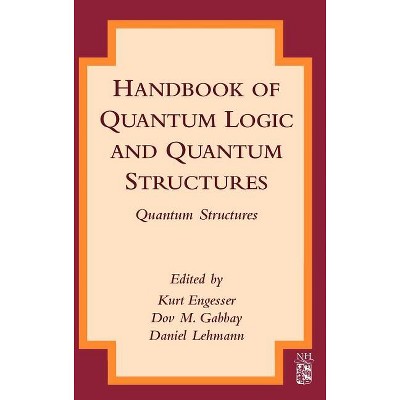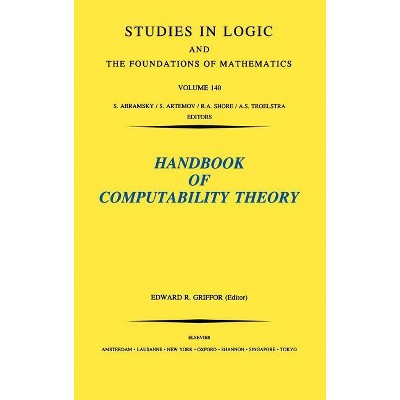Sponsored

The Many Valued and Nonmonotonic Turn in Logic - (Handbook of the History of Logic) by Dov M Gabbay & John Woods (Hardcover)
$250.99
In Stock
Eligible for registries and wish lists
Sponsored
About this item
Highlights
- The present volume of the Handbook of the History of Logic brings together two of the most important developments in 20th century non-classical logic.
- Author(s): Dov M Gabbay & John Woods
- 690 Pages
- Mathematics, Logic
- Series Name: Handbook of the History of Logic
Description
Book Synopsis
The present volume of the Handbook of the History of Logic brings together two of the most important developments in 20th century non-classical logic. These are many-valuedness and non-monotonicity. On the one approach, in deference to vagueness, temporal or quantum indeterminacy or reference-failure, sentences that are classically non-bivalent are allowed as inputs and outputs to consequence relations. Many-valued, dialetheic, fuzzy and quantum logics are, among other things, principled attempts to regulate the flow-through of sentences that are neither true nor false. On the second, or non-monotonic, approach, constraints are placed on inputs (and sometimes on outputs) of a classical consequence relation, with a view to producing a notion of consequence that serves in a more realistic way the requirements of real-life inference. Many-valued logics produce an interesting problem. Non-bivalent inputs produce classically valid consequence statements, for any choice of outputs. A major task of many-valued logics of all stripes is to fashion an appropriately non-classical relation of consequence.The chief preoccupation of non-monotonic (and default) logicians is how to constrain inputs and outputs of the consequence relation. In what is called "left non-monotonicity", it is forbidden to add new sentences to the inputs of true consequence-statements. The restriction takes notice of the fact that new information will sometimes override an antecedently (and reasonably) derived consequence. In what is called "right non-monotonicity", limitations are imposed on outputs of the consequence relation. Most notably, perhaps, is the requirement that the rule of or-introduction not be given free sway on outputs. Also prominent is the effort of paraconsistent logicians, both preservationist and dialetheic, to limit the outputs of inconsistent inputs, which in classical contexts are wholly unconstrained.In some instances, our two themes coincide. Dialetheic logics are a case in point. Dialetheic logics allow certain selected sentences to have, as a third truth value, the classical values of truth and falsity together. So such logics also admit classically inconsistent inputs. A central task is to construct a right non-monotonic consequence relation that allows for these many-valued, and inconsistent, inputs.The Many Valued and Non-Monotonic Turn in Logic is an indispensable research tool for anyone interested in the development of logic, including researchers, graduate and senior undergraduate students in logic, history of logic, mathematics, history of mathematics, computer science, AI, linguistics, cognitive science, argumentation theory, and the history of ideas.Dimensions (Overall): 9.73 Inches (H) x 6.88 Inches (W) x 1.34 Inches (D)
Weight: 3.13 Pounds
Suggested Age: 22 Years and Up
Number of Pages: 690
Genre: Mathematics
Sub-Genre: Logic
Series Title: Handbook of the History of Logic
Publisher: North-Holland
Format: Hardcover
Author: Dov M Gabbay & John Woods
Language: English
Street Date: August 1, 2007
TCIN: 1006601436
UPC: 9780444516237
Item Number (DPCI): 247-12-8976
Origin: Made in the USA or Imported
If the item details aren’t accurate or complete, we want to know about it.
Shipping details
Estimated ship dimensions: 1.34 inches length x 6.88 inches width x 9.73 inches height
Estimated ship weight: 3.13 pounds
We regret that this item cannot be shipped to PO Boxes.
This item cannot be shipped to the following locations: American Samoa (see also separate entry under AS), Guam (see also separate entry under GU), Northern Mariana Islands, Puerto Rico (see also separate entry under PR), United States Minor Outlying Islands, Virgin Islands, U.S., APO/FPO
Return details
This item can be returned to any Target store or Target.com.
This item must be returned within 90 days of the date it was purchased in store, shipped, delivered by a Shipt shopper, or made ready for pickup.
See the return policy for complete information.
Frequently bought together

$16.78 - $20.97
was $21.00 - $30.00 New lower price
4.8 out of 5 stars with 4 ratings
Trending Non-Fiction

$19.31
was $20.98 New lower price
4 out of 5 stars with 62 ratings

$4.59
MSRP $7.99
Save $5 when you spend $20 on select books
4.8 out of 5 stars with 121 ratings

$6.20
MSRP $10.95
Save $5 when you spend $20 on select books
4.8 out of 5 stars with 33 ratings

$7.09
MSRP $9.99
Save $5 when you spend $20 on select books
4.9 out of 5 stars with 46 ratings








